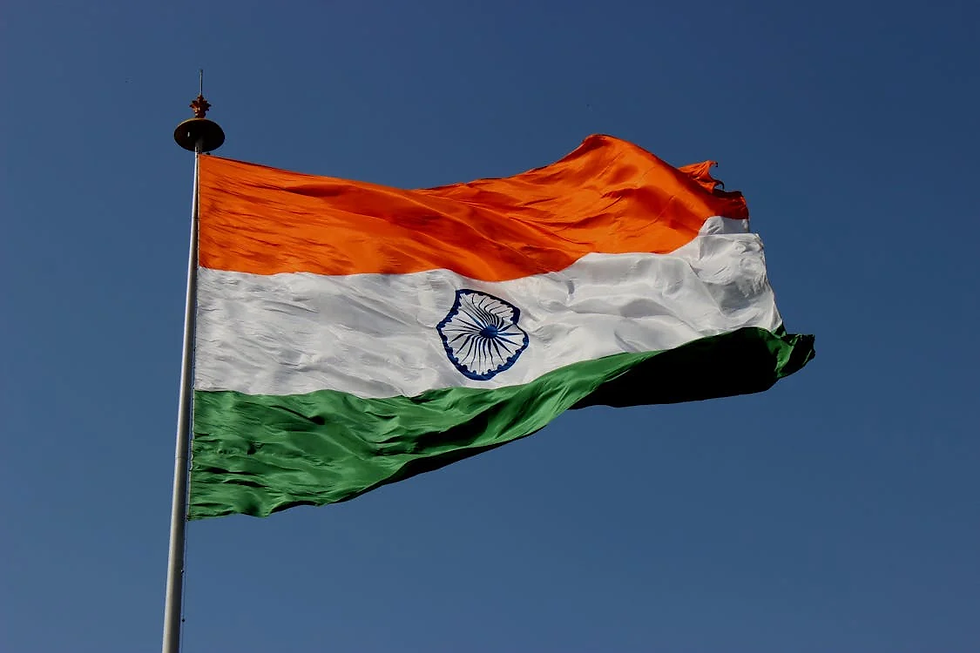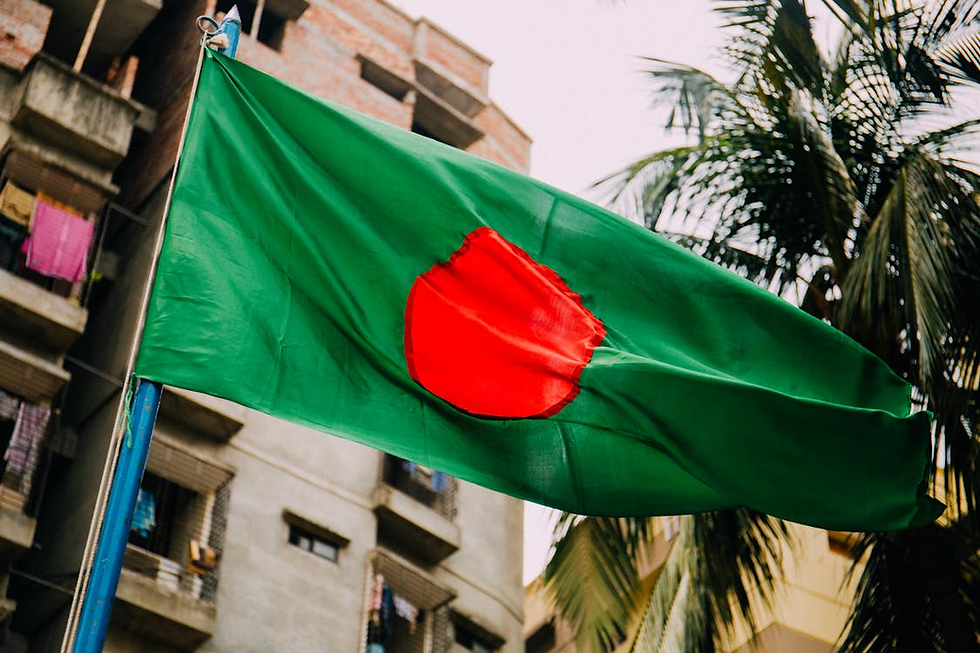Bilkis Bano's Attackers Released from Prison
- Arshiya Khanna
- Aug 22, 2022
- 4 min read
Updated: Dec 23, 2024
Content warning: this article contains mentions of murder and sexual violence
On the 15th of August 2022, while India was celebrating its 75th anniversary of independence, the country also witnessed a grave judgement passed by the Gujarat High Court. While PM Modi echoed the ideals of women’s rights, dignity and “Nari Shakti” (female power), 11 men convicted on charges of rape and murder walked free from the Godhra sub-jail in Gujrat.
The Gujarat High Court’s decision came as a shock to the people of India - many of whom reject the façade of legal justifications used to account for the ruling. Videos of the 11 convicts being garlanded at the Vishwa Hindu Parishad office invited even more backlash from across the country.

These 11 men were charged with raping a 21-year-old pregnant woman by the name of Bilkis Bano during the violent riots in Gujarat (2002). Bano was 5 months pregnant at the time. She also witnessed the brutal murder of seven of her family members, including her three-year-old daughter.
The Gujarat riots were an inter-communal conflict in the Indian state of Gujarat. The violent clashes occurred largely between Hindus and Muslims, and left more than 1000 people dead. As of today, the Gujarat riots of 2002 represent a permanent scar on India’s secularist ideals.
The case was initially taken up by the National Human Rights Commission (NHRC) and the Supreme Court of India, which ordered a thorough investigation to be undertaken by the CBI (Central Bureau of Investigation).
The final verdict was passed by the Maharashtra high court in 2008, which sentenced these 11 men to life imprisonment on charges of rape and murder. Additionally, in 2019, the supreme court directed the Gujarat High Court to provide Bilkis Bano with a compensation of Rs 50 Lakh (over $6,200) as well as a job and accommodation.
On the 13th May 2022, Radheshyam Bhagwandas Shah (one of the accused) appealed to the Supreme Court for release from prison. He sought remission on the basis of the 1992 remission policy, which essentially states that, upon completion of 14 years of imprisonment, convicts can be released earlier than their sentence states.
In Shah’s case, as well as the 10 others, they had completed 15+ years of imprisonment (as of April 2022). However, the amended remission policy passed in 2014 states that a person charged with gang rape and murder can, under no circumstance, be released prematurely. The main point of contention that arises is whether the 1992 remission policy should take precedence over the more recent 2014 policy. And, if so, with what reason?
According to India’s supreme court: “…“It has been settled by this court in State of Haryana vs Jagdish that the application for grant of premature release will have to be considered on the basis of the policy which stood on the date of conviction.”. That is to say, that the remission policy of 1992 remains relevant in granting remission to the 11 convicts today.
Subsequently, the case for remission was transferred to the Gujarat High Court, since Gujarat was the location of the crime. The Gujarat government formed a committee which “unanimously” decided in favour of the proposed remission. The state government of Gujarat accepted the recommendation of the committee, and proceeded to release the 11 convicts on 15th August 2022.
Though the case is now technically closed, there still remains an unsettling discrepancy in the handling of different cases. The Gujarat government has previously denied the right of remission to prisoners convicted of similar crimes (such as rape and murder), in accordance with the remission policy of 2014.
Shobha Gupta, the lawyer representing Bilkis Bano,stated: “Although 1992 policy maintains that the completion of serving the 14 years of sentence is mandatory for seeking remission, it does not imply that the mere period of serving the sentence, or improved behaviour becomes the basis of releasing the convicts.”
Under section 435 of the Code of Criminal Procedure (CrPC), it is required that the state government can only grant remission after consulting the Central government. It is currently unclear whether the Gujarat government did in fact consult the Central government before releasing the 11 convicts. The Central government is yet to voice any concern over the move.
Hence, the question remains: has Bilkis Bano received the justice she deserves?
Bano’s statement is enough to answer this question: “…the trauma of the past 20 years washed over me again when I heard that the 11 convicted men who devastated my family and my life, and took from me my three-year-old daughter, had walked free. I was bereft of words. I am still numb. How can justice for any woman end like this? I trusted the highest courts in our land. I trusted the system, and I was learning slowly to live with my trauma”.
This case depicts the multifaceted nature of injustice and discrimination that finds itself at the feet of victims like Bilkis Bano. In the context of India, casteist, religious, and sexist prejudices stretch far and wide across the nation. This makes it an uphill struggle for victims from religious or caste minorities to seek, and successfully be served, justice.
Currently, there are demands for revoking this grim judgement. Several Congress Members of the Legislative Assembly in Gujarat have requested that the president revokes the decision. Over 6,000 signatories have also urged the Supreme Court to overturn the remission of the convicts.

_edited.png)



Comments